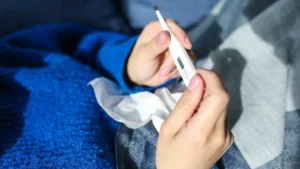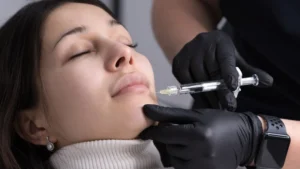Discovering a mysterious bump on your gums can be a disconcerting experience. It raises questions and concerns about your oral health. “Why do I have a bump on my gums?” you wonder. While bumps on the gums may vary in size and appearance, understanding their underlying causes is crucial for proper diagnosis and timely treatment.
In this article, we will explore the potential reasons behind these bumps and provide valuable insights into their nature and management. By shedding light on common culprits like canker sores, gingival abscesses, periodontal cysts, gum inflammation, and even oral herpes, we aim to demystify this dental dilemma.
Whether you are experiencing discomfort or simply seeking knowledge to maintain optimal oral health, read on to gain a deeper understanding of why these bumps may have appeared and what steps you can take to address them effectively.
Understanding Gum Anatomy
Our gums play a vital role in maintaining the health of our teeth and supporting oral hygiene. To comprehend the significance of gum bumps, it’s essential to have a basic understanding of gum anatomy.
Read More: Dental Veneers for Gapped Teeth
Structure of the Gums
The gums, also known as gingiva, are soft tissues that line the oral cavity. They cover the alveolar processes, which are the bony ridges that hold the teeth in place.
Gums are made up of thick and fibrous mucosal tissue, which provides a protective barrier for the underlying bone and tooth roots.

Normal Appearance of Healthy Gums
Healthy gums have a firm, pinkish appearance and fit snugly around the teeth. They have a stippled or textured surface, resembling the skin of an orange peel. When gums are healthy, they do not exhibit any signs of swelling, redness, or bumps.
Identifying Changes or Abnormalities
Any deviation from the normal appearance or texture of the gums may indicate an underlying issue. Bumps, lumps, or other irregularities on the gums should be carefully examined to determine the cause. These changes may be symptomatic of various conditions such as infections, cysts, inflammation, or traumatic injuries.
Possible Causes of Why I Have a Bump on My Gums
Gum bumps can be caused by various factors, and identifying the underlying cause is crucial for appropriate treatment. Here are several possible reasons for the appearance of bumps on the gums:
Canker Sores or Aphthous Ulcers
Canker sores are small, painful ulcers that can develop on the gums. They are typically round or oval-shaped with a white or yellowish center and a red border.
These sores can be caused by multiple factors, including minor injuries, stress, hormonal changes, or certain foods.
While canker sores often heal on their own within a couple of weeks, over-the-counter topical treatments or home remedies can help alleviate discomfort.

Gingival Abscess or Gum Boil
A gingival abscess, also known as a gum boil, is a localized infection that forms a pus-filled bump on the gums.
It occurs when bacteria invade the gum tissue, leading to swelling, tenderness, and the formation of a painful bump.
Prompt treatment is necessary to prevent the infection from spreading. A dental professional will typically drain the abscess and prescribe antibiotics to eradicate the infection.
Read More: How to Get Rid of Black Gums?
Periodontal (Gum) Cyst
A periodontal cyst is a fluid-filled sac that can form within the gum tissue. It is often painless and may go unnoticed until it grows larger or causes discomfort.
Periodontal cysts can develop due to a blockage in the salivary glands or as a result of inflammation in the gum tissue.
Treatment typically involves surgical removal of the cyst to prevent complications and promote oral health.
Gum Inflammation (Gingivitis)
Gingivitis refers to the inflammation of the gums, often caused by the buildup of plaque and tartar due to poor oral hygiene.
Inflammation of the gums can result in redness, swelling, and tenderness. In some cases, gum inflammation can lead to the formation of small bumps.
Proper oral hygiene practices, such as regular brushing, flossing, and professional dental cleanings, are essential for managing and preventing gingivitis.
Oral Herpes (Cold Sores)
Oral herpes, commonly known as cold sores or fever blisters, is a viral infection caused by the herpes simplex virus.
Cold sores can appear on the lips, inside the mouth, and occasionally on the gums. These fluid-filled blisters can cause discomfort and tenderness.
Antiviral medications can help manage outbreaks, while good oral hygiene and avoiding triggers like stress or sun exposure can reduce their occurrence.

Other Possible Causes
Other less common causes of gum bumps include traumatic injuries, allergic reactions, or certain systemic conditions.
Trauma to the gums, such as accidentally biting the gum tissue or using a toothbrush with excessive force, can result in the formation of bumps.
Allergic reactions to certain foods, medications, or oral care products can also cause gum swelling and bumps. In rare cases, systemic conditions like certain autoimmune disorders may manifest as gum abnormalities.
Read More: How to Cure Gum Disease Without a Dentist?
When to Seek Professional Help
While some gum bumps may resolve on their own or with home remedies, it is crucial to know when it’s time to seek professional dental help.
Prompt intervention from a dental professional can ensure an accurate diagnosis and appropriate treatment. Here are some situations that warrant a visit to the dentist:
Persistent or Worsening Symptoms
If you notice that the gum bump persists for more than two weeks or if it continues to grow in size or cause discomfort, it is advisable to seek professional evaluation.
Persistent or worsening symptoms may indicate an underlying condition that requires professional attention.
Pain or Discomfort
Gum bumps that are painful, tender, or interfere with eating, speaking, or performing daily activities should be evaluated by a dental professional. Pain is often a sign of infection or inflammation that needs to be addressed promptly.
Spreading or Spreading Infection
If the gum bump shows signs of spreading, such as redness or swelling extending beyond the initial area, or if you observe signs of infection, such as fever or pus discharge, immediate dental care is essential. This could indicate an aggressive infection that requires professional treatment.
Difficulty in Oral Hygiene Practices
Gum bumps that hinder proper oral hygiene practices, such as brushing or flossing in the affected area, should be examined by a dentist.
Maintaining good oral hygiene is crucial for preventing further complications and promoting overall oral health.
Previous Oral Health Issues
If you have a history of gum disease, dental infections, or recurring oral problems, it is advisable to seek professional advice for any new gum bumps.
These conditions may increase the likelihood of developing complications and necessitate professional evaluation.
Uncertainty or Concern
When in doubt or if you have any concerns about the gum bump, it is always wise to consult a dental professional.
They have the expertise and knowledge to assess the situation, provide an accurate diagnosis, and offer appropriate guidance and treatment options.
Conclusion
In conclusion, discovering a bump on your gums can be concerning, but understanding the potential causes is key to addressing the issue.
Gum bumps can be caused by various factors, such as canker sores, gingival abscesses, periodontal cysts, gum inflammation, oral herpes, traumatic injuries, allergic reactions, or systemic conditions.
Recognizing the need for professional help is important, especially if you experience persistent or worsening symptoms, pain, spreading infection, difficulty in oral hygiene practices, previous oral health issues, or uncertainty.
Seeking prompt dental care can lead to an accurate diagnosis and appropriate treatment, preventing complications and promoting optimal oral health.
Remember to maintain good oral hygiene practices, schedule regular dental check-ups, and consult a dental professional for any concerns or uncertainties.
By prioritizing your oral health, you can effectively manage gum bumps and ensure a healthy smile.
FAQs (Frequently Asked Questions)
1. Can gum bumps go away on their own?
In some cases, gum bumps may resolve on their own within a couple of weeks. However, it is advisable to have any persistent or worsening bumps evaluated by a dental professional.
2. Are gum bumps always a sign of a serious problem?
Not necessarily. Gum bumps can have various causes, and while some may be harmless, others may require treatment. Consulting a dental professional is essential to determine the underlying cause.
3. What can I do to relieve discomfort from gum bumps?
Over-the-counter topical treatments, such as oral gels or rinses, can help alleviate discomfort from gum bumps. Additionally, avoiding spicy or acidic foods can provide some relief.
4. Can poor oral hygiene cause gum bumps?
Yes, poor oral hygiene can contribute to gum inflammation, which may lead to the formation of gum bumps. Maintaining good oral hygiene practices is crucial for preventing such issues.
5. Can I prevent gum bumps from occurring?
While not all gum bumps can be prevented, practicing good oral hygiene, maintaining a healthy diet, managing stress levels, and avoiding known triggers can help reduce the risk of certain types of gum bumps.
6. Should I be concerned if a gum bump bleeds?
Bleeding from a gum bump could be a sign of infection or inflammation. It is important to have it evaluated by a dental professional to determine the underlying cause.
7. Can gum bumps be a sign of oral cancer?
While gum bumps can be a symptom of various oral conditions, including oral cancer, they are not always indicative of cancer. It is best to consult a dental professional for an accurate diagnosis.
8. Are gum bumps contagious?
Most gum bumps, such as canker sores or periodontal cysts, are not contagious. However, certain conditions like oral herpes can be contagious through direct contact.
9. Can I pop a gum bump at home?
It is not recommended to pop or squeeze a gum bump at home. Doing so may lead to further infection, pain, and complications. Consult a dental professional for appropriate treatment.
Medical References
- American Dental Association. (2021). Gum Disease. Retrieved from https://www.mouthhealthy.org/en/az-topics/g/gum-disease
- Mayo Clinic. (2021). Canker Sore. Retrieved from https://www.mayoclinic.org/diseases-conditions/canker-sore/symptoms-causes/syc-20370615
- American Academy of Periodontology. (2021). Gum Abscess. Retrieved from https://www.perio.org/consumer/gum-abscess
- American Academy of Periodontology. (2021). Periodontal (Gum) Cyst. Retrieved from https://www.perio.org/consumer/gum-cyst
- National Institute of Dental and Craniofacial Research. (2021). Gingivitis. Retrieved from https://www.nidcr.nih.gov/health-info/gum-disease/more-info/gingivitis
- American Academy of Oral Medicine. (2021). Herpes Simplex Virus. Retrieved from https://www.aaom.com/index.php?option=com_content&view=article&id=81:herpes-simplex-virus&catid=22:patient-condition-information&Itemid=120



